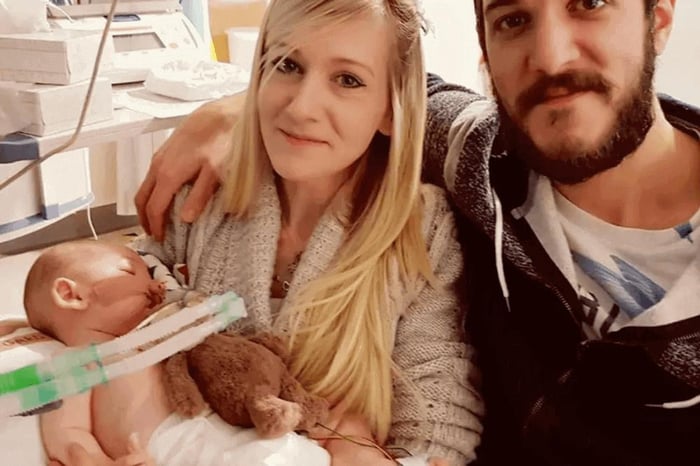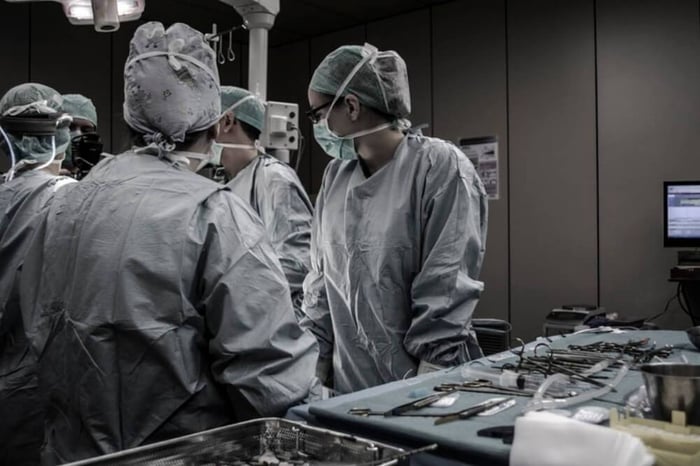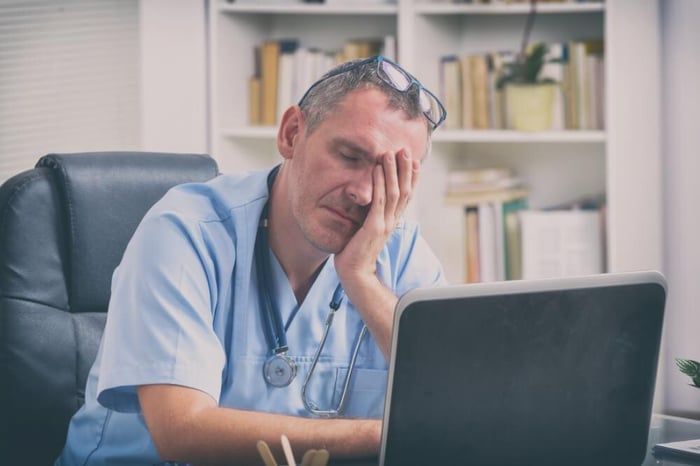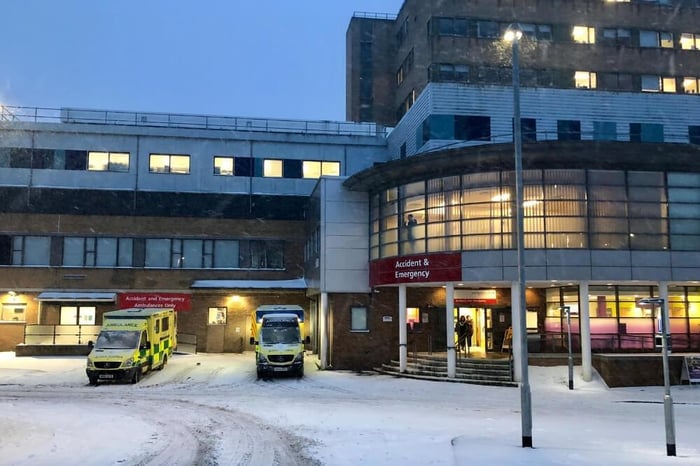
NHS Hot Topics: The Charlie Gard Case
The Charlie Gard case divided public opinion when It made front-page news in 2017. The emotional case surrounded baby Charlie Gard, who was afflicted by a rare metabolic condition. The case drew much media attention following the legal battle between Charlie’s parents, Chris Gard and Connie Yates, and the Great Ormand Street Hospital. In this blog post, we will go through some of the facts of the case, the legal battles and outcomes and also reflect on the impact this sad, but historic case had on British healthcare.
THE FACTS
THE HOPE

THE MEDIA CAMPAIGN
Charlie’s parents disagreed with the opinion of the UK doctors. Through the use of social media they were able to drum up huge international support for Charlie, raising £1.2 million for his treatment. This was enough money to take Charlie to the USA for treatment.
The massive media coverage, by both traditional outlets and through social media, meant that news of the dispute between the two parties spread across the world and divided opinions. High profile individuals such as the Pope and Donald Trump came out publicly in support of Charlie’s parents. This demonstrates the power of modern media and how difficult it can be to remain objective.
THE LEGAL BATTLES
On the 24th February 2017, GOSH made an application to the Family Division of the High Court. The medical team were seeking declarations that in the eyes of the law it was in Charlie’s best interests to be withdrawn from artificial ventilation and palliated. They also wanted the court to declare that it was within the law, as it was in Charlie’s best interests, that he did not undergo nucleoside therapy in the United States.
Based on the evidence presented to him, the high court judge, Justice Francis felt it would not be in Charlie’s best interests to trial the nucleoside therapy and that withdrawal of artificial ventilation and proceeding with palliative care would be lawful.

Subsequent to this decision, Charlie’s parents sought to appeal against the court ruling. However, the Court of Appeal rejected the new distinctions brought by the case and upheld the original best interests decision regarding the case. Appeals were also made to the Supreme Court and then the European Court of Human Rights. Arguments made centred around the Charlie’s parents’ rights to judge their child’s best interests. In addition, it was argued that GOSH had deprived Charlie of his liberty under the European Convention of Human Rights by blocking access to the experimental treatment which they argued, may have been life-sustaining. As a result of this escalation, an interim order required the provision of artificial ventilation, nutrition and hydration for Charlie, effectively prolonging the time in which he was kept on life support treatment.
On the 27th June 2017, The European Court of Human Rights refused to intervene in the case, thereby ending the appeal process. The European courts stated that the UK courts decisions had already been reviewed on three separate levels and were thorough enough to have delivered a satisfactory ruling.
Charlie Gard sadly passed away on the 28th July 2017.

THE QUESTIONS AND THE LEARNING POINTS
1. Who should decide on what is in the patient’s best interests?
The case has raised strong ethical questions regarding a child’s right to life. When it comes to the question as to whether or not Charlie should have been allowed to undergo an experimental treatment, or whether life support should have been withdrawn, there is a strong divide in opinion. There is no doubt that whichever side of the argument you stand on, everyone involved wanted what was in Charlie’s best interests. The question is, what is in Charlie’s best interests and who is best poised to make a decision regarding this?
Those who agree with the court rulings must concede by the very nature of the ruling that they feel the medical profession is best placed to judge whether or not a potential treatment, such as nucleoside therapy, could provide benefit to a patient. Therefore, if the medical profession feels there is a risk of significant harm to the patient, then experimental treatments should not be trialled. Therefore, alleviating suffering and allowing peaceful end of life care is what is in the patient’s best interests.
However, those on the other side of the argument it may be said that death is the ultimate harm. Therefore, palliating a patient without every attempt, no matter how small the chance of success, would be doing the patient an injustice. In addition, it may be said that in Charlie Gard case, the best interests of a child is determined by those closest to him. That is to say, his parents would be best placed to make this decision. It was, therefore, unjust to have neglected them the opportunity to try the experimental treatment.
2. WHAT IMPACT DID THE MEDIA HAVE ON THE OUTCOME?
There is no doubt that such an emotive case generated much public interest. However, one must consider the effects the media had on the outcomes of the case. The first consideration must be to the factual accuracy of public opinion. In an age of fast flowing social media, the Charlie Gard case led to the crowdfunding of large sums of money to help Charlie’s parents to travel to America for the experimental nucleoside treatment. Popular opinion at the time was that the NHS was not willing to fund the experimental treatment in the UK. However, on deeper analysis it must be acknowledged that funding was never a concern for GOSH. In fact, they stated that if the nucleoside treatment was deemed to have been suitable, it could have been funded on a compassionate basis in the UK. Such misconceptions show how a media frenzy can incorrectly distort our opinions, and therefore, be dangerous.
The impact of the media on professional decision making must also be considered. Knowing how closely the world was following this case must place an immense amount of pressure on those at the helm of our judicial system. Though trained to be impartial, one must be aware that a ruling in a case such as this will set precedent for future cases and also influence global perceptions on our healthcare and judicial system. This was most apparent when public figures such as the Pope and Donald Trump commented and voiced their opinions on the case.
3. WHAT IMPACT DO HIGH PROFILE CASES SUCH AS THIS HAVE ON THE PROFESSION AND THE NHS?
As a profession, doctors have a duty to be transparent and open about their practices. The profession is constantly under scrutiny by the public and governing bodies. It is argued that this is an important aspect to quality improvement within the healthcare service. However, high profile cases such as this can put an unprecedented amount of pressure on the profession. Protests outside of GOSH showed how public anger can often be directed towards healthcare professionals. Doctors may feel unsafe or under pressure when attending to their duties, and this may negatively impact their performance.
Despite the public anger, there will always also be those who praise doctors for the work that they do and their professionalism in such difficult times. Indeed, the case highlighted the careful and rationale decision-making skills doctors must utilise on a day to day basis.
In addition to scrutiny faced by doctors, healthcare systems across the world drew comparisons to the NHS. A key comparison was that of the US healthcare system and the publicly funded NHS. It can be argued that it may appear in the American healthcare system, that if funding was available for a treatment, it would more likely be given. In the UK, some may argue the system lends itself to a more defensive approach to treating patients. Opinions would be divided as to which system is better for the public. On one hand, although the avid use of experimental treatments may lead to a number of success stories and the satisfaction of knowing all efforts were made for the patient; one must balance this with the prospect of harming or prolonging suffering in patients who do not respond so well to experimental treatments.
In your interview
Indeed the Charlie Gard case has highlighted some of the challenges and difficulties faced day-to-day by healthcare professionals and patients. The important ethical and legal issues raised by this case make it a likely topic for your medical school interviews. Ensure you are well-versed with facts of the case and make up your own mind as to whether you agree with the court ruling or not. It is important to have an opinion, but remember there is no right or wrong answer here. What is more important is that you are able to argue the various points of view whilst demonstrating empathy and understanding for all those involved in the case. Use the pillars of medical ethics alongside the principles of consent, confidentiality and capacity to help formulate and argument. Remember to check out our videos on medical ethics to master your interview technique.
We hope that this was a helpful overview of this NHS issue and you feel more confident tackling it if it comes up as a question. Don't hesitate to send us any questions or comments by email at [email protected]. Good luck in your interview!



